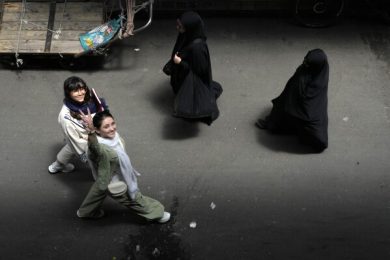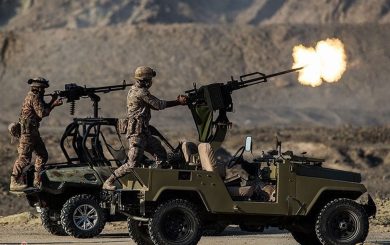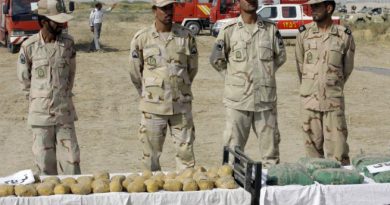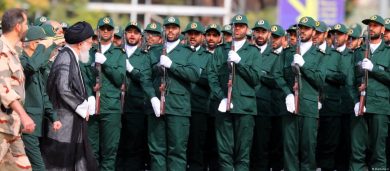The Islamic Revolutionary Guard Corps (IRGC) has emerged as one of the most potent forces of state-sponsored terrorism in the modern era. Founded in 1979 to protect Iran’s Islamic Revolution, the IRGC quickly evolved into a global actor capable of influencing conflicts, supporting terrorist organizations, and destabilizing regions far beyond its borders. While much of its activity operates in the shadows, its footprint can be seen in proxy wars, financial networks, and ideological warfare. This article delves into how the IRGC wields its influence, highlighting its role in perpetuating global terrorism and its impact on international security.
The Origins and Mandate of the IRGC
The IRGC was established in the aftermath of the 1979 Iranian Revolution as a parallel military force tasked with defending the new Islamic Republic and exporting its revolutionary ideology. Unlike conventional militaries, the IRGC’s mandate extends beyond national defense. Its mission includes enforcing ideological conformity at home and projecting power abroad through unconventional means, often circumventing international norms and laws.
The IRGC’s Quds Force, a specialized unit within the organization, plays a pivotal role in its international operations. Charged with overseeing Iran’s foreign missions and cultivating proxy groups, the Quds Force is the IRGC’s primary tool for advancing its geopolitical ambitions through terrorism and insurgency.
Global Terror Networks and Proxy Warfare
One of the IRGC’s most effective strategies has been its use of proxy forces to carry out its objectives. By funding, training, and arming militias and terrorist groups, the IRGC avoids direct confrontation while extending its influence across the globe. These proxies include Hezbollah in Lebanon, Shiite militias in Iraq, Houthi rebels in Yemen, and Palestinian factions like Hamas and Islamic Jihad.
Hezbollah: The Jewel in the IRGC’s Crown
Perhaps the most well-known IRGC proxy is Hezbollah, a Shiite militant group based in Lebanon. Established in the early 1980s with IRGC support, Hezbollah has become a formidable force in the region. The IRGC provides the group with advanced weaponry, funding, and training, enabling it to conduct attacks against Israel and expand its influence in Lebanon.
Hezbollah’s activities are not limited to the Middle East. The group has been implicated in terrorist operations across the globe, including the 1992 Israeli embassy bombing and the 1994 AMIA Jewish community center bombing, both in Buenos Aires, Argentina. These attacks highlight the IRGC’s ability to orchestrate complex operations far from its base of operations.
Shiite Militias in Iraq
In Iraq, the IRGC has cultivated a network of Shiite militias that have played a dual role: fighting against ISIS and acting as a counterbalance to U.S. influence in the country. Groups like Kata’ib Hezbollah and Asa’ib Ahl al-Haq are directly supported by the IRGC and have been involved in attacks on American forces, including the use of explosively formed penetrators (EFPs), which caused significant U.S. casualties during the Iraq War.
These militias also serve as political tools for Iran, leveraging their power to influence Iraqi politics and ensure that the country remains within Iran’s sphere of influence.
Houthi Rebels in Yemen
In Yemen, the IRGC has supported the Houthi insurgency against the internationally recognized government, providing weapons, training, and tactical support. Houthi forces have used Iranian-supplied drones and missiles to target Saudi Arabia and disrupt global oil supplies, further destabilizing an already fragile region.
Economic Infrastructure Supporting Terrorism
The IRGC’s ability to sustain its global operations relies heavily on its control of significant portions of Iran’s economy. Through its extensive network of front companies, illicit smuggling operations, and control over key industries like construction, energy, and telecommunications, the IRGC generates billions of dollars annually.
This financial network is used to fund its proxies, acquire advanced weaponry, and evade international sanctions. For example:
- The IRGC has been implicated in drug trafficking operations, using the proceeds to finance its activities.
- Oil smuggling networks, often shielded by complex shipping schemes, have enabled the IRGC to bypass sanctions and fund terrorism.
Direct Acts of Terrorism
While the IRGC often operates through proxies, it has also been directly implicated in acts of terror and assassination attempts worldwide. One of the most brazen examples was the 2011 plot to assassinate the Saudi ambassador to the United States in Washington, D.C. The plan involved hiring operatives to carry out a bombing at a restaurant, demonstrating the IRGC’s willingness to conduct attacks on foreign soil.
Other notable incidents include the targeting of dissidents and opposition leaders abroad. The IRGC has been linked to assassinations of Iranian exiles in Europe and attacks on Kurdish leaders, showcasing its ability to project power against perceived enemies beyond Iran’s borders.
The Role of Ideology in IRGC Terrorism
At the core of the IRGC’s actions is the ideological goal of exporting Iran’s Islamic Revolution. This ideology underpins its relationships with proxy groups and its justification for acts of terror. The IRGC frames its operations as a defense of oppressed Shiite communities and a challenge to Western imperialism, creating a narrative that resonates with its allies and recruits.
This ideological drive has exacerbated sectarian tensions across the Middle East, particularly in Iraq, Syria, and Yemen. By positioning itself as the defender of Shiite Islam, the IRGC has polarized communities and fueled cycles of violence.
Impact on Regional and Global Stability
The IRGC’s actions have had profound consequences for regional and global security. Its support for militias and terrorist groups has prolonged conflicts, undermined fragile governments, and created humanitarian crises. For instance:
- In Syria, the IRGC’s backing of Bashar al-Assad has contributed to one of the worst humanitarian disasters of the 21st century, with hundreds of thousands killed and millions displaced.
- In Lebanon, Hezbollah’s influence has paralyzed the government and heightened tensions with Israel.
- In Yemen, IRGC-backed Houthi attacks have exacerbated the civil war and disrupted vital shipping routes in the Red Sea.
Beyond the Middle East, the IRGC’s global operations have brought terror to Europe, Africa, and the Americas, highlighting the need for coordinated international action to counter its influence.
International Efforts to Counter the IRGC
Several countries, including the United States, have designated the IRGC as a terrorist organization, enabling targeted sanctions and other measures to curb its activities. However, countering the IRGC’s influence requires a multifaceted approach:
- Disrupting Financial Networks: Targeting the IRGC’s funding sources through sanctions and international cooperation.
- Strengthening Regional Partners: Supporting governments and communities affected by IRGC-backed groups to resist its influence.
- Enhanced Counterterrorism Coordination: Sharing intelligence and resources to identify and neutralize IRGC operations globally.
Conclusion
The IRGC’s hidden hand in global terrorism is a testament to its strategic vision and adaptability. By leveraging proxies, financial networks, and ideological narratives, it has built a sprawling infrastructure capable of undermining stability across regions and continents. Addressing the IRGC’s influence is not just a matter of counterterrorism—it is essential for protecting global security and promoting peace in some of the world’s most volatile regions. Recognizing and dismantling the IRGC’s networks must remain a priority for the international community.
Join Our Newsletter!
Stay informed with the latest updates, news, and ways to take action in the fight for justice and global security. Sign up now to get updates delivered straight to your inbox!





